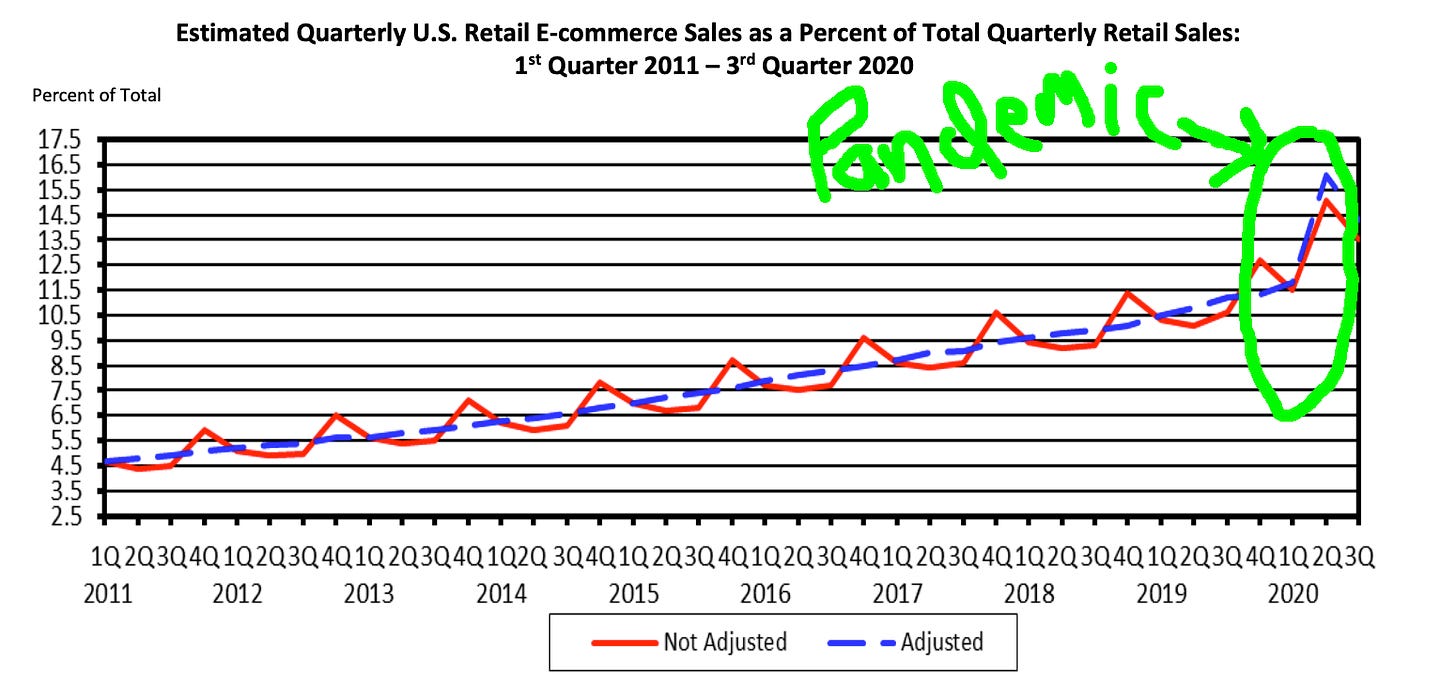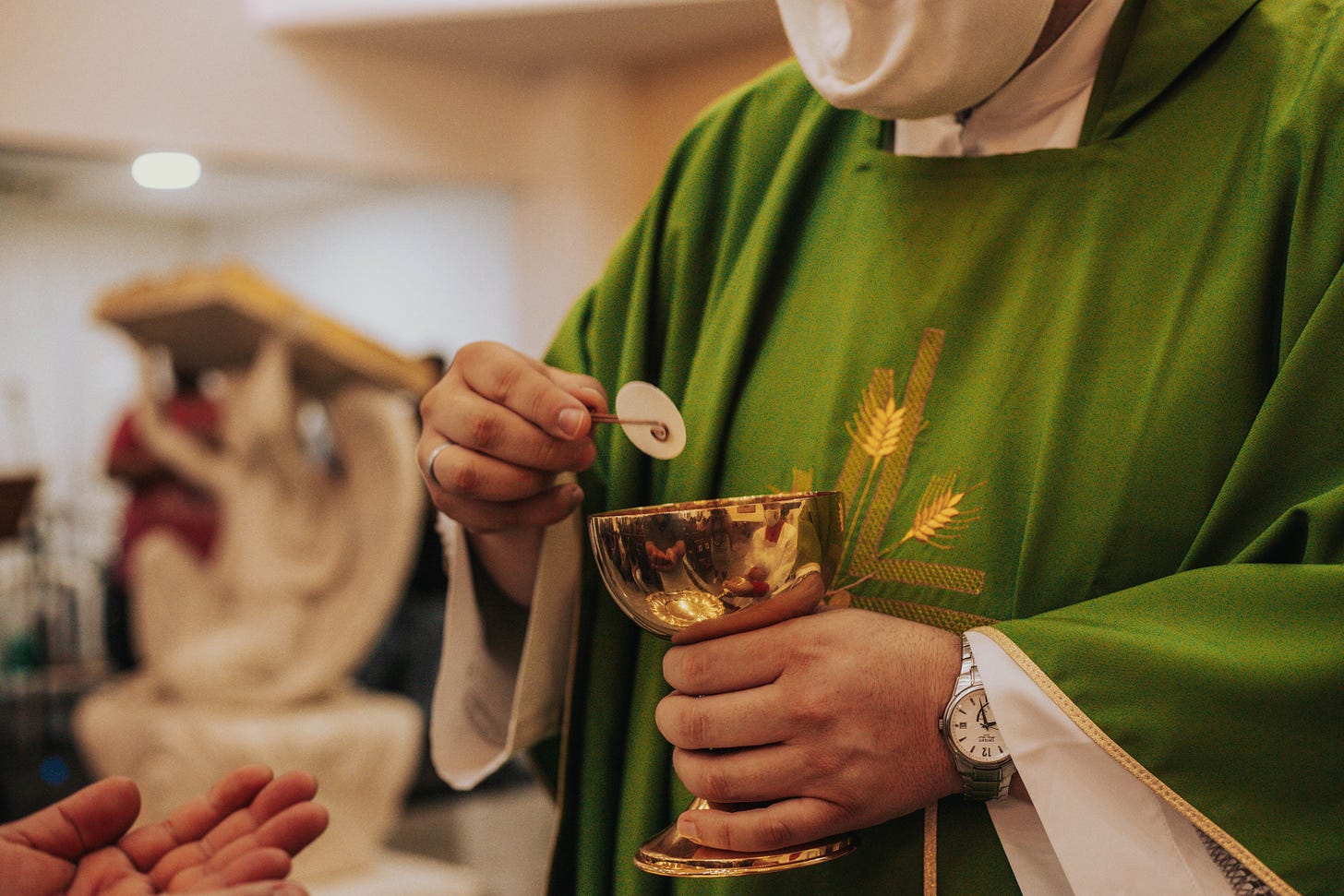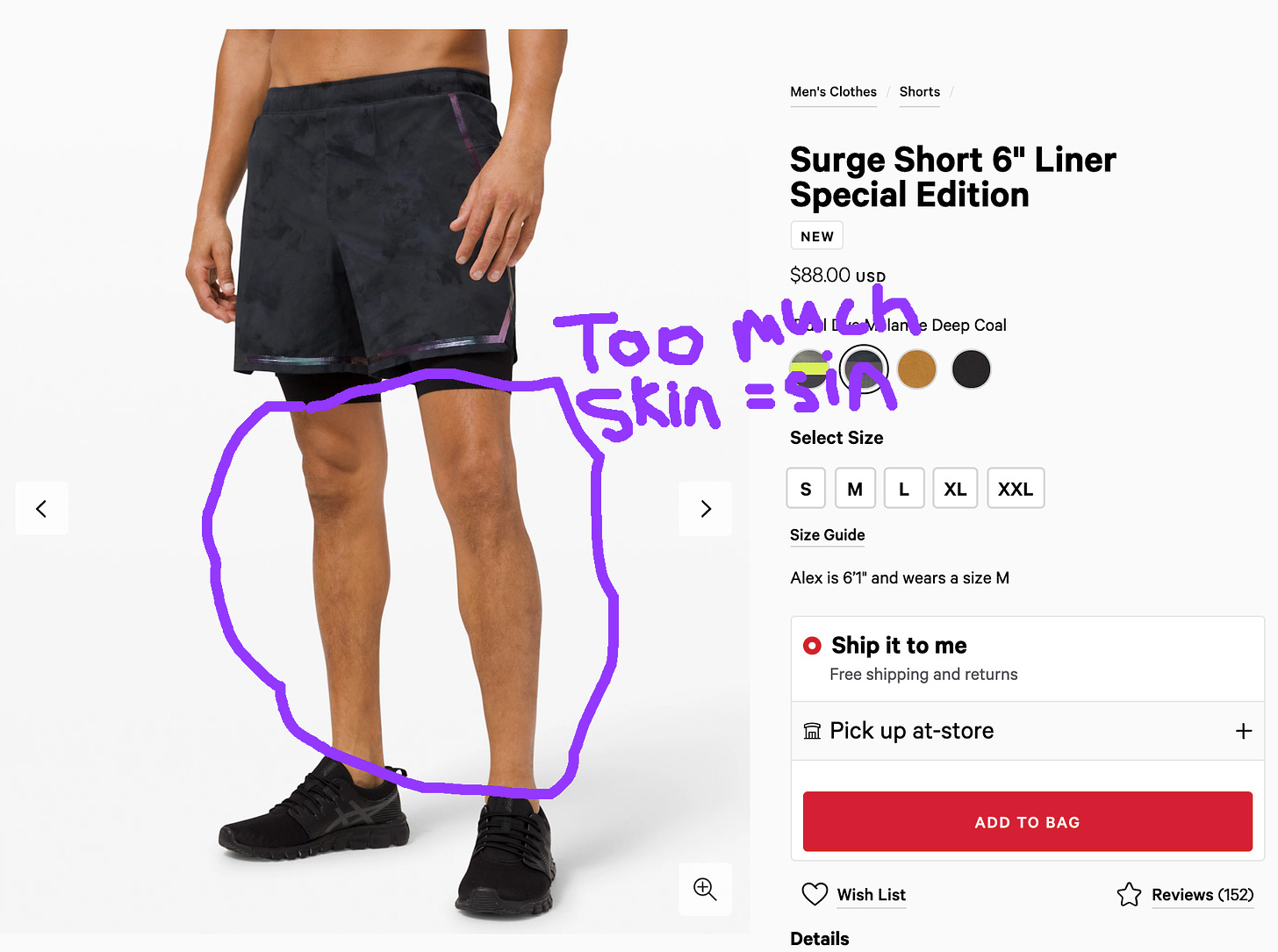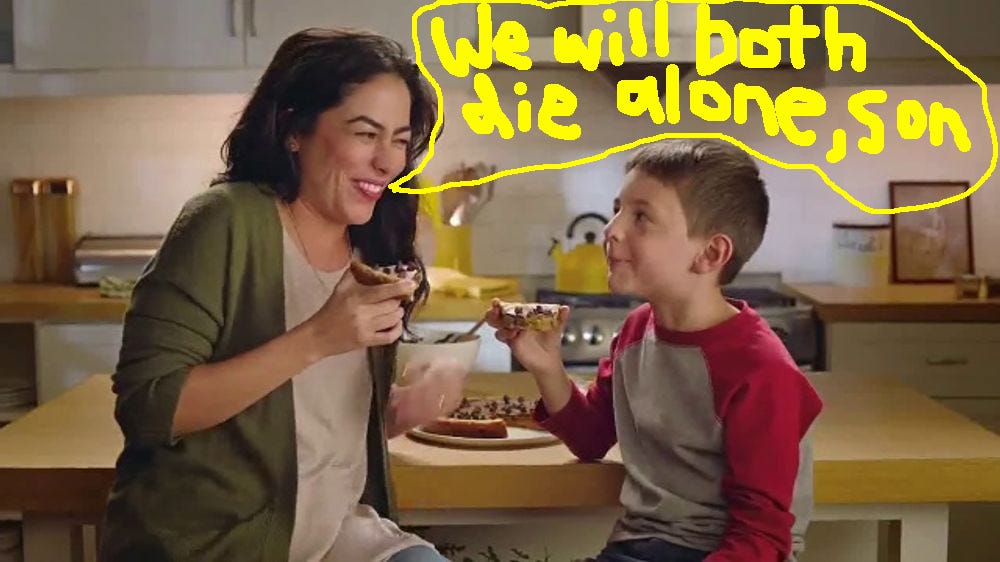The Pope vs. Lulu?
Catholicism and Lululemon are both institutions that aim to provide comfort through ritual. So how can participation in one run counter to participation in the other?
One of these is not like the other
The pandemic has exposed the paradox that while we are more connected, we are also more divided. Feverish consumerism breaks the bonds of belonging. It causes us to focus on our self-preservation and makes us anxious.
- Pope Francis, head of the Catholic Church in a November 26th, 2020 NYT editorial
Both of the above statements come from institutions whose mission is to grant us solace and to foster community. Over the course of a pandemic that has atomized us to an unprecedented degree, solace and community would seemingly be welcomed into most people’s lives. Yet, judging by Pope Francis’ quote above, one group’s pursuit of community is antithetical to the other’s.
Ritual required
To obtain a sense of community and the solace that comes with it, both institutions require its members to participate in rituals.
Lululemon’s vision of community-building and solace granting, according to its 2019 annual report, is:
“To be the experiential brand that ignites a community of people living the sweatlife through sweat, grow and connect.”
Without knowing what ‘the sweatlife’ is, and the off-putting grammar aside, Lululemon wants us to use its products to connect with others and find personal growth. Connection and growth are discovered through exercise. Exercise, in the sense that it’s practiced often enough to warrant the purchase of multiple items at Lululemon, is ritualized body maintenance.
Meanwhile, for the Catholic Church—and most other religions—solace is found through adherence to religious norms and beliefs. Faith bestows believers comfort, helps them find empathy, and provides an ethical structure upon which they can structure their beliefs and actions. This faith is found in practicing—the ritualized events such as church attendance and baptisms, reading of religious texts, potlucks, etc.
Catch the catechism
While membership in one of the communities above is not mutually exclusive to the other, it’s fair to say that both entities promote rituals towards similar ends.
However, according to one institution, the deeper ingrained you become into one community, the further you drift from society at large. For an $88 pair of workout shorts that don’t confer its wearer any special abilities besides a visible display of spending capacity, ‘feverish consumerism’ is a fairly apt description. According to Pope Francis, it’s this feverish consumerism that’s ‘breaking the bonds of belonging’.
The two groups are put further at odds later in the Pope’s editorial:
We cannot return to the false securities of the political and economic systems we had before the crisis. We need economies that give to all access to the fruits of creation, to the basic needs of life: to land, lodging and labor.
With this in mind, according to Francis, it’s not just the pursuit of owning the shorts that tears us apart, it’s what goes into making them as well. Many Lululemon factory workers are paid less in a month than the price of certain pairs of leggings. Regardless of what country the workers are located in, it’s hard to imagine that amount of money providing for anything more than subsistence-level living.
No matter where you sit in a product’s lifecycle—production or consumption—the Pope sees us participating in an immiserating economic system.
What’s next
With opportunities for in-person community building—without direct ties to consumption—like religious gatherings, community events, and schools put on hold, we’re far more atomized than we were before the pandemic. Bereft of these opportunities, in steps Lululemon, and other brands, to fill the void.

It’s not just Lulu though: the chart above shows the growth in U.S. ecommerce sales as a percentage of all retail sales. From Q1 2020 to the end of Q3 2020, we see a large uptick in growth.
It’s easy to rib Lululemon for its asinine tweet. It isn’t alone though. Other brands, as well as religions, lean on our insecurities to get us to participate in community building. In the case of Lulu, or most other clothing brands, it’s insecurities around the way we present ourselves, mainly: the shapes of our bodies, how much money we have, and what we aspire to be. The more you participate in the rituals, whether it’s exercise in the case of Lululemon, or baking cookies with Toll House, the greater your emotional salve.
This isn’t to say we should be leaning into religion more now that we’re in lockdown. It’s that brands are often idiotic and even when they aren’t, by nature of how they produce, whatever community they strive to create will never be greater than that which they destroy.
✝️👟✝️ Praying for more content like this? Smash the button below to subscribe for once-a-week content.
👍👍👍 Feeling like doing a bit of evangelizing? Share with your friends.








Jho strikes again. Brilliant! It feels like the world is made of little mini cults today. I guess since Priests are diddling kids, people need to channel their need to believe in something else and sometimes it’s joggers and a water bottle. But why do we need to believe in something so much? We all seem to. People are fascinating. And personally I’m a sucker for NXIVM genre cult showsbc.I. Can’t.Stop. The toll house illustration made me lol